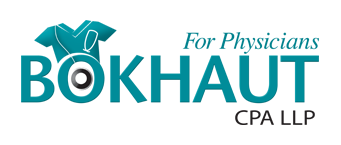As the holiday season approaches, doctors often give gifts to colleagues, administrative staff, nurses, and...
I Just Called to Scam You
You May Also Like…
How to determine if it’s CRA on the line.
Over the past few years, scam phone calls from individuals claiming to be from the Canada Revenue Agency (CRA) have increased. As we approach the time of year to file personal tax returns, these calls become more frequent as scammers seek to take advantage of the tax season.
These scam callers can seem quite legitimate and often use intimidation to gather information.
If you think the call may be a scam, the best option is to hang up and contact CRA directly on their main personal or business lines. An agent at CRA should be able to review your file and confirm if the call was legitimate.
Real CRA agents have policies and scripts which they are required to follow. If the call you receive deviates from the below, you may have been contacted by a scammer:
- A CRA agent will always identify themselves by name.
- The CRA will never “confirm your identity” with information that is not available on your personal tax return (ex. a credit card number).
- The CRA will never issue threats of arrest or sending law enforcement. Most scam callers will become angry or argumentative if questioned.
- The CRA will never request payment of taxes in the form of gift cards, cryptocurrency, or any other unusual form of payment.
- The CRA will never contact you to recommend or assist in applying for benefits.
If you are unsure about the caller, ask and make note of the following information:
- Name
- Agent ID
- Phone Number
- Office Location
If the caller refuses to or cannot provide this information, it is very likely a scam.
The CRA phone numbers are:
Personal – 1-800-959-8281
Business – 1-800-959-5525
For more information on reasons CRA may contact you and how to report a potential scam, please follow the link below:
* This article was prepared on January 27, 2023. Content is for informational purposes only and is not intended to be used as professional advice. Each taxpayer’s circumstances are unique. Bokhaut CPA makes no representation as to the accuracy and completeness of the information in this article and will not be liable for any errors or omissions in this information.
You May Also Like…
Tax Implications of Gift Gifting From Your Medical Practice
As the holiday season approaches, doctors often give gifts to colleagues, administrative staff, nurses, and professional advisors. While these gestures are generous, they may lead to unexpected tax implications. Gifts to Non-Employees: Doctors may give gifts to...
11 Reasons Why Physicians Contribute to RESPs
As veterans of higher education, physicians often anticipate that their children will carry the torch of post-secondary learning. Physicians can optimize savings and tax on this future expenditure by contributing to a Registered Education Savings Plan (RESP), which...
Physician New to Canada? What you need to know about Canadian Personal Taxes.
Are you a physician that moved to Canada in the last year? If so, these are some things that you should know about filing your first Canadian Personal Tax Return: When are Canadian taxes due? Canadian personal taxes are calculated based on income earned between...
Basic Overview of Canadian Personal Taxes
Personal tax season is upon us and as you gather your personal tax documents you may be wondering “How are my personal taxes calculated?”. How are Canadian Personal Taxes Calculated? Canadian taxes are based on a graduated rate system. This system can be thought of in...
RRSP or TFSA
RRSPs and TFSAs are both “registered” investment accounts, which means that they receive special tax treatment that is not applicable to other “non-registered” investment accounts. The special tax treatment of these accounts increases the total benefit of investing by...
Month of Giving (Part 3): Donation of Securities
Instead of liquidating securities to fund donations, it may be more tax efficient to donate securities directly to charitable organizations. If you sell a security to obtain cash to donate, you generally need to pay tax on the profit earned, also known as a capital...
Month of Giving (Part 2): Tax Efficient Donating
Many physicians in Canada have incorporated their practices, as there are significant tax benefits to doing so. This then provides incorporated doctors with two avenues to donation: Corporate Donations Personal Donations We are often asked, “should I make donations...
Month of Giving (Part 1): Donation Tax Credit Refresher
December is the month of giving. While deciding which charitable organizations you wish to support this year, the following donation tax credit information is good to keep in mind: What qualifies as a donation for tax purposes? To qualify for the donation tax...
The Season of Giving – is it taxable?
As the holiday season approaches, it is not unusual for doctors to provide gifts to their employees, hospital administrative staff, colleagues, and nurses. While these gifts are generous gestures, they may result in unexpected tax implications. Gifts to Employees When...
Financial Considerations of Buying a Home
There is a lot to think about when you buy your first home. What colour should you paint the living room? What should the extra bedroom be used for? A home office? A gym? Or maybe a nursery? Outside of aspirational objectives, there are many practical matters...









